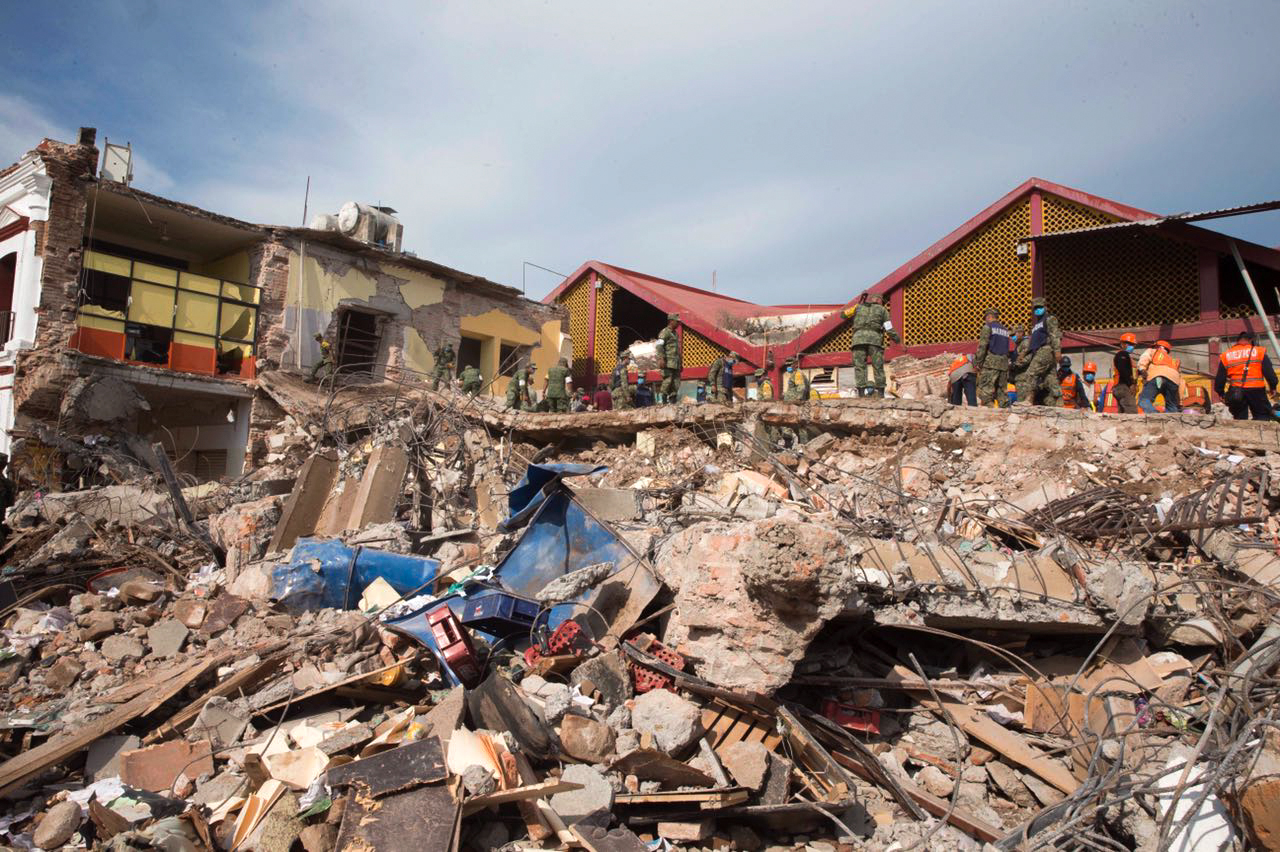Views expressed in opinion columns are the author’s own.
As the effects of Hurricanes Irma and Harvey continue to devastate the United States, we are acting as if we are the only nation that matters. As the current administration preaches nationalism and America first, we have forgotten that other countries are suffering tragedies worse than ours. Media coverage has prioritized domestic concerns over the damage hurricanes Harvey and Irma caused in the Caribbean, the massive earthquakes in Mexico, the immense flooding across South Asia and the ethnic cleansing in Myanmar. This has allowed America to ignore the lack of aid the United States offers the rest of the world.
In a Washington Post article that described Irma as a “dangerous major hurricane,” the Caribbean Islands were only mentioned once, and not even by their individual names. The article focused on the potential damage Irma would cause Florida and said essentially nothing about the wreckage it unleashed in Barbuda. Because of Barbuda’s small size, citizens had nowhere to evacuate and were forced to remain at home while Irma tore through their towns. Up to 90 percent of Barbuda has been destroyed, and nearby islands such as St. Martin, Antigua and Haiti suffered similar destruction. U.S. focused news covers renders us oblivious to America’s humanitarian failure to deliver foreign aid.
As a country, we don’t do nearly enough to help the rest of the world. On average, Americans think 25 percent of the federal budget goes toward foreign aid; in reality, only one percent of the budget does. This is an incredibly small percentage when compared to the aid other developed countries provide to struggling regions across the world. Our government’s failure to provide aid is a moral outrage and must be combatted, particularly through public advocacy for increased foreign assistance.
While Harvey and Irma caused significant damage to Texas and Florida, at least the United States has the resources to rebuild. Many of the Caribbean Islands are incredibly poor and sustain themselves on tourism. Now that their islands have been destroyed, their economy will suffer as well. Barbuda only has one airport, and it was annihilated by the storm, so all aid had to be brought in by ship or ferry. Delivering aid to Texas and Florida is much easier.
According to the Borgen Project, which is a nonprofit organization that works to make global poverty and foreign aid a bigger priority for the U.S., 95 countries offered aid to the United States after Hurricane Katrina. Compared to other countries, the United States gave the 20th most in foreign aid. Norway ranked first, appropriating 1.07 percent of their gross national for foreign development, while the United States gave only .19 percent. When compared to other countries, and compared to other parts of the our federal budget, helping other nations is not a priority for the United States.
It is understandable to focus on domestic issues, but we must make room in our consciousness for the rest of the world. Mexico, which faced a magnitude 5.4 earthquake just a couple weeks ago and a 7.1 magnitude earlier today, offered aid to the United States immediately after Hurricane Harvey hit Texas. President Trump, on the other hand, did not even acknowledge the first earthquake until later, blaming “poor cell service.”
Bangladesh annually loses thousands of people to monsoons and flooding, yet we do not hear about it, year after year, in the United States. This summer, floods across South Asia have killed close to 1,000 people, and millions have been displaced and injured. Most of the countries in South Asia are still developing economically. These people cannot afford to have their homes damaged, yet we do not raise money for them.
In Myanmar, ethnic cleansing is occurring, right now. Myanmar’s Rohingya population is facing genocide. Survivors have reported “summary executions, indiscriminate rape and the wholesale destruction of villages,” but it doesn’t directly impact the United States, so it doesn’t take nearly as much priority. These people need our help as much as those in Texas and Florida.
We raise money for Texas and Florida, and we post on Facebook asking our friends to pray for Harvey and Irma victims, but we forget that other parts of the world are perpetually suffering. Don’t reserve your prayers and your financial charity solely for disaster in the United States; be indiscriminate in how you give and to whom.
It’s unconscionable that so many individuals and families in Texas and Florida have lost their homes, but the United States is not the center of the universe. We shouldn’t be fooled into thinking the destruction here constitutes all tragedy, and we certainly shouldn’t endorse using only one percent of the federal budget to help the rest of the world.
Liyanga de Silva is a sophomore English major. She can be reached at liyanga.a.ds@gmail.com.



